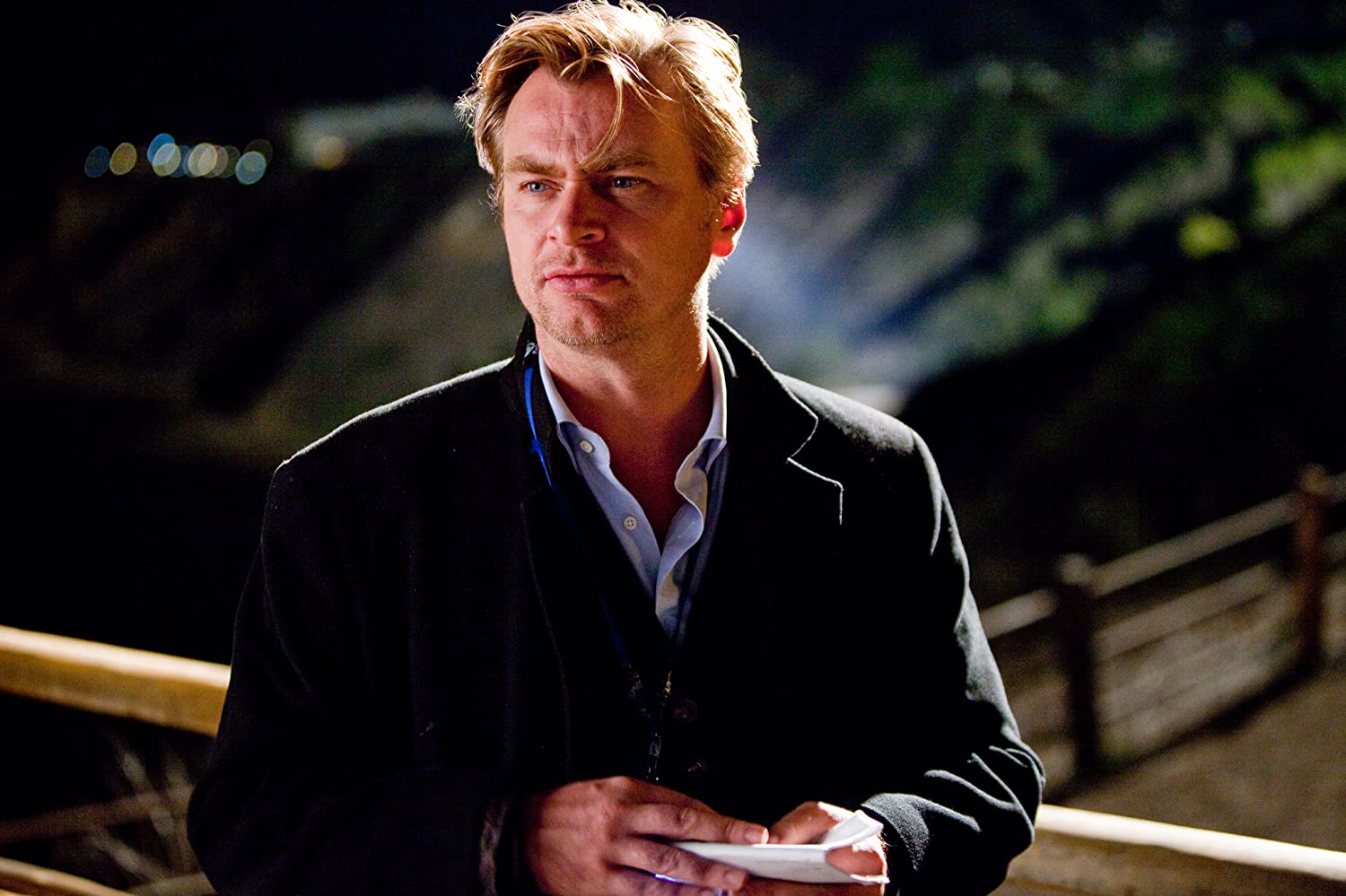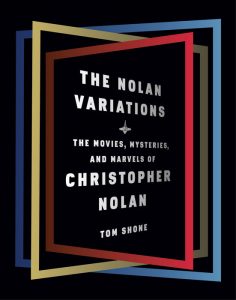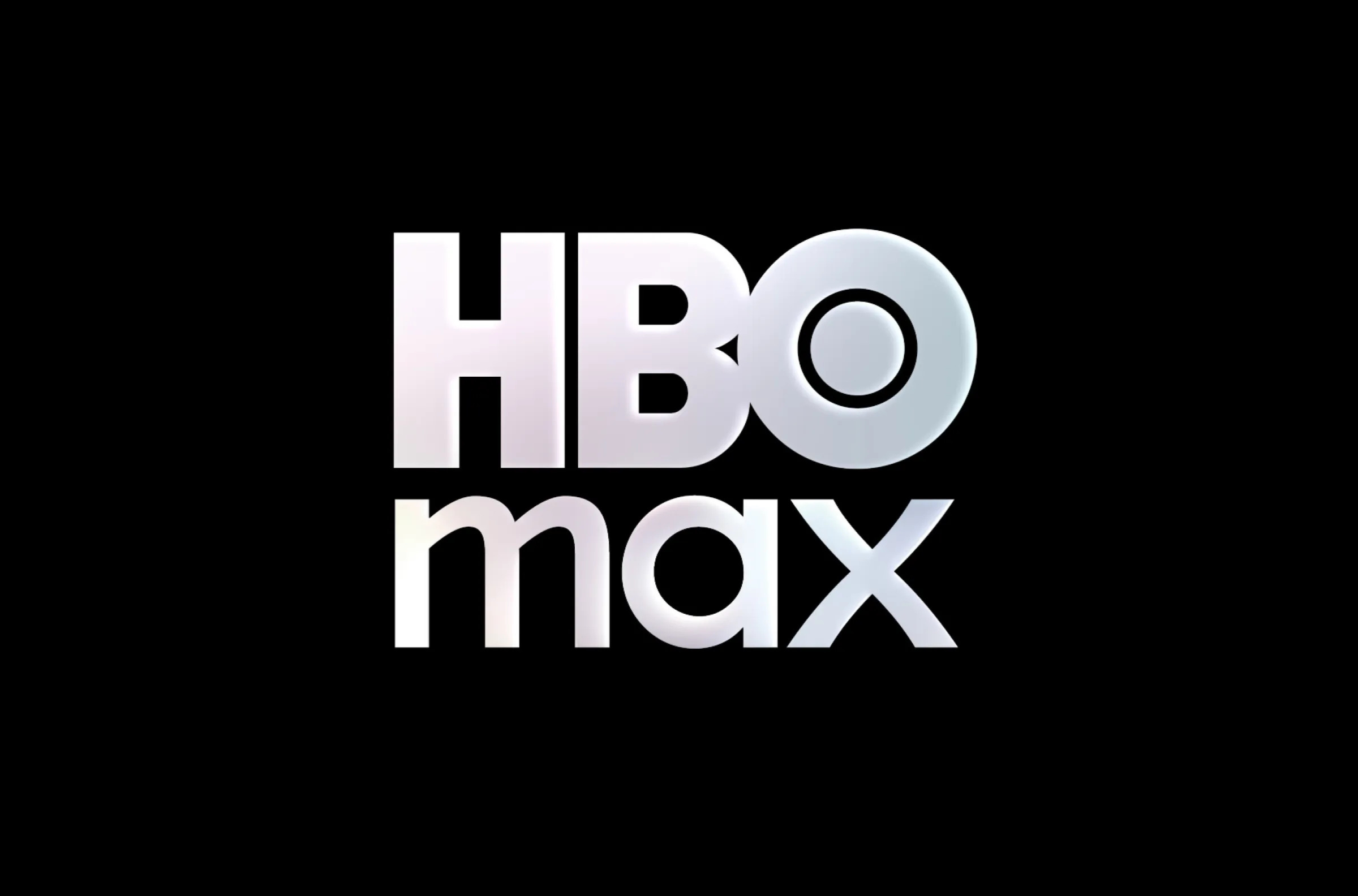
The Nolan Variations: The Movies, Mysteries, and Marvels of Christopher Nolan is the most in-depth look yet at the blockbuster auteur.

Before I start this off, I want to stress my disappointment at seeing the Wachowskis get misgendered during the book’s introduction. How this gets past the editors and into the final print is beyond me. This is beyond infuriating!
Nolan is in the category that very few filmmakers could ever hope to achieve. James Cameron and Peter Jackson are the only two other directors that can claim the title of blockbuster auteur. Or so Tom Shone argues. There are very few filmmakers of his stature solely focused on original content. Yes, there is The Dark Knight Trilogy but Nolan put his own stamp on the genre.
Nolan, whose mother is American, is the most successful British filmmaker since a guy by the name of Alfred Hitchcock. He is as old-school as it gets. Days start at 7 AM and end at 7 PM. No second units exist on his films because of his old-school nature. More than that, the filmmaker does not have email or a cell phone.
Behind the camera, Nolan is “retired from the business of just doing another film for the sake of doing it.” Because of the process, any idea he brings in front of the camera has to be something he loves. His original idea for Dunkirk was to make a film without writing a screenplay. On screenwriting, Nolan says:
“A script is not a great model of what a finished film is going to be. It is too difficult for a filmmaker to put your visual ideas into words, without getting bogged down in style. I enjoy writing screenplays because they are very stripped-down, simple documents. And the more stripped down they are, the better they are. The less literary they are, the more they approximate the direct experience of what’s going to happen on-screen. I’m always looking for ways around that, or ways to help understand the narrative beyond that.”
Nolan listened to film scores on his Walkman during his boarding school years after lights went out. Specifically, the soundtracks of Star Wars, 2001, and Chariots of Fire. The latter score alone would provide the model for which Nolan wanted from the Hans Zimmer scores in his films. Nolan likens the scores to ambient music. The filmmaker “prized the imaginative space of listening to music in the dark, thinking about things, imagining things, films, stories.”
After making Following and Memento, Insomnia served as Nolan’s first big studio film. It provided a new perspective when it comes to filmmaking. Here’s an excerpt from page 117 about the lesson he learned while making the film.
“The efficiency of filmmaking for me is a way of keeping control. The pressure of time, the pressure of money. Even though they feel like restrictions of time, and you chafe against them, they’re helping you make decisions. They really are. Can I close off? When am I finished? If I know that deadline is there, then my creative process ramps up exponentially. Okay, live by the decisions you make. Creative power in filmmaking is very important to me. I’m very protective of it, but I get my power from spending less and moving faster”
Nolan talks in-depth about the process behind the Batman films. He chose against treating it like a comic book movie. Nolan said that everything they “did was about being in massive denial that there was such a thing.” He was mainly focusing on making epic action films. Nolan also put a lot of his earlier Howard Hughes script into Batman Begins. James Bond would also serve as an influence. Nolan decided to have Lucius Fox as a stand-in for Q. I have to take issue with Nolan’s comments of Bob Kane being influenced by Ian Fleming unless this part was worded wrong. Batman as a whole pre-dated the Bond stories.
Shone has Nolan talking in-depth about every film. If you left Interstellar with feelings of confusion or you want to know more about why Nolan cuts Inception where he does, this is the book for you! Personally, I was shocked to discover that Shone even covers Tenet. Yes, this book came out in November but given how secret Nolan is about his films, this also meant being very risky when it comes to who knows what about the film. But for what it’s worth, I recommend the book.
While this could be another article in its own right, Nolan does talk about his feelings when it comes to the concept of streaming films. Surprisingly, the filmmaker is not actually against the idea of you watching a film on your phone. The subject comes up on page 344. Nolan says that “part of what the movies are about is this unique subjective point of view that you then share with other people.” The filmmaker says that 3-D doesn’t work because “it skews that relationship.” Asked if he has a problem with someone watching Dunkirk on their phone or whatever, Nolan responds:
“No, I don’t, but the reason I don’t is because it’s put into these big theaters as its primary form, or its initial distribution. And that experience trickles down, to the extent where, if you have an iPad and you’re watching a movie, you carry with you the knowledge and your understanding of what that cinematic experience would be and you extrapolate that. So when you watch a TV show on your iPad, your brain is in a completely different mindset.”
The Nolan Variations may feature heavy input from Christopher Nolan himself but it is far from the last word on the filmmaker’s career.



